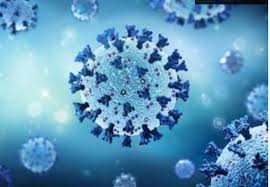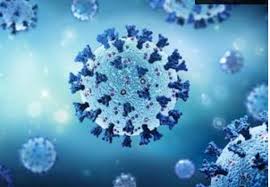
According to British scientists, adequate neutralising antibodies against the Omicron coronavirus variant are not generated by two-dose Covid-19 vaccines. This study indicates the likelihood of being infected with the variant even for those who had bene previously infected or completely vaccinated.
Blood samples from individuals who were given doses from AstraZeneca-Oxford or Pfizer-BioNTech were examined in a big trial by researchers from the University of Oxford. The scientists were looking at the performance of mixed doses of vaccines. The results of the study were published in a paper which is yet to be peer reviewed.
Last week, data from the UK health agency revealed that boosters doses of Covid-19 was able to considerably restore protection against the Omicron variant. A day ago British Prime Minister Prime Minister Boris Johnson cautioned that two doses of vaccines will not be enough to keep people safe from the Omicron variant.
According to the Oxford study, there is currently no proof that the risk of severe disease, hospitalisation, or death among individuals who have been administered two doses of approved vaccines is enhanced if the individuals have lesser number of infection fighting antibodies against the Omicron variant.
"These data are important but are only one part of the picture. They only look at neutralising antibodies after the second dose, but do not tell us about cellular immunity, and this will also be tested," said Matthew Snape, Oxford professor and co-author of the paper.
Another recent study suggested that a reduction in the health burden of long terms illness from Covid-19 could be possible because of vaccines.
Researchers looked at survey answers from 28,356 persons aged 18 to 69 years from all around the UK. These respondents had previously been diagnosed with Covid-19. Researchers found that over a quarter of the respondents reported troubling residual symptoms after being cured of Covid-19.
The risk of the participants reporting prolonged Covid-19 symptoms at least 12 weeks after infection decreased by 13 per cent following them having received the first vaccination dose, according to the researchers, who published their findings on medRxiv last week prior to peer reviewing of the paper.
It was not clear if the betterment in conditions between the first and second dosages was s. According to research leader Daniel Ayoubkhani of the UK Office for National Statistics, an additional 9 per cent drop in the chances of prolongation of Covid-19 symptoms following the second vaccination dosage "did appear to be sustained, at least over the follow-up period of 67 days on average."
Prolonged Covid-19 symptoms that interfered with everyday activities followed the same pattern, irrespective of whether subjects got vaccinations from AstraZeneca, Pfizer/BioNTech, or Moderna vaccines.
"However," Ayoubkhani noted, "we can't say from this study if, or how, vaccination caused the observed changes in symptoms, and more follow-up time is needed to assess whether the improvement will be sustained in the longer term and the impact of booster doses and new variants."
(Sourcee:www.bloomberg.com)
Blood samples from individuals who were given doses from AstraZeneca-Oxford or Pfizer-BioNTech were examined in a big trial by researchers from the University of Oxford. The scientists were looking at the performance of mixed doses of vaccines. The results of the study were published in a paper which is yet to be peer reviewed.
Last week, data from the UK health agency revealed that boosters doses of Covid-19 was able to considerably restore protection against the Omicron variant. A day ago British Prime Minister Prime Minister Boris Johnson cautioned that two doses of vaccines will not be enough to keep people safe from the Omicron variant.
According to the Oxford study, there is currently no proof that the risk of severe disease, hospitalisation, or death among individuals who have been administered two doses of approved vaccines is enhanced if the individuals have lesser number of infection fighting antibodies against the Omicron variant.
"These data are important but are only one part of the picture. They only look at neutralising antibodies after the second dose, but do not tell us about cellular immunity, and this will also be tested," said Matthew Snape, Oxford professor and co-author of the paper.
Another recent study suggested that a reduction in the health burden of long terms illness from Covid-19 could be possible because of vaccines.
Researchers looked at survey answers from 28,356 persons aged 18 to 69 years from all around the UK. These respondents had previously been diagnosed with Covid-19. Researchers found that over a quarter of the respondents reported troubling residual symptoms after being cured of Covid-19.
The risk of the participants reporting prolonged Covid-19 symptoms at least 12 weeks after infection decreased by 13 per cent following them having received the first vaccination dose, according to the researchers, who published their findings on medRxiv last week prior to peer reviewing of the paper.
It was not clear if the betterment in conditions between the first and second dosages was s. According to research leader Daniel Ayoubkhani of the UK Office for National Statistics, an additional 9 per cent drop in the chances of prolongation of Covid-19 symptoms following the second vaccination dosage "did appear to be sustained, at least over the follow-up period of 67 days on average."
Prolonged Covid-19 symptoms that interfered with everyday activities followed the same pattern, irrespective of whether subjects got vaccinations from AstraZeneca, Pfizer/BioNTech, or Moderna vaccines.
"However," Ayoubkhani noted, "we can't say from this study if, or how, vaccination caused the observed changes in symptoms, and more follow-up time is needed to assess whether the improvement will be sustained in the longer term and the impact of booster doses and new variants."
(Sourcee:www.bloomberg.com)





